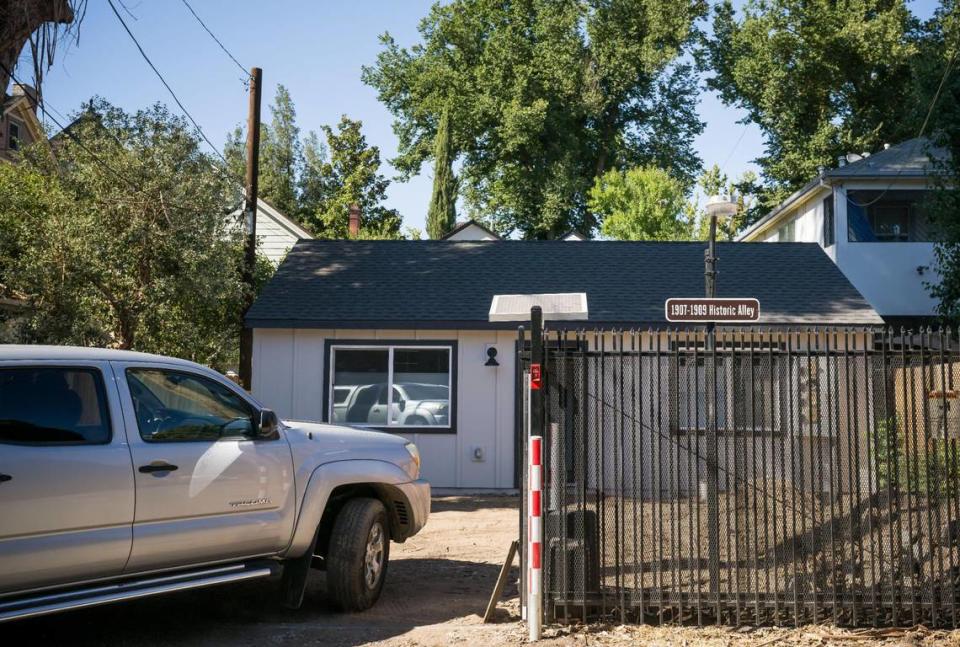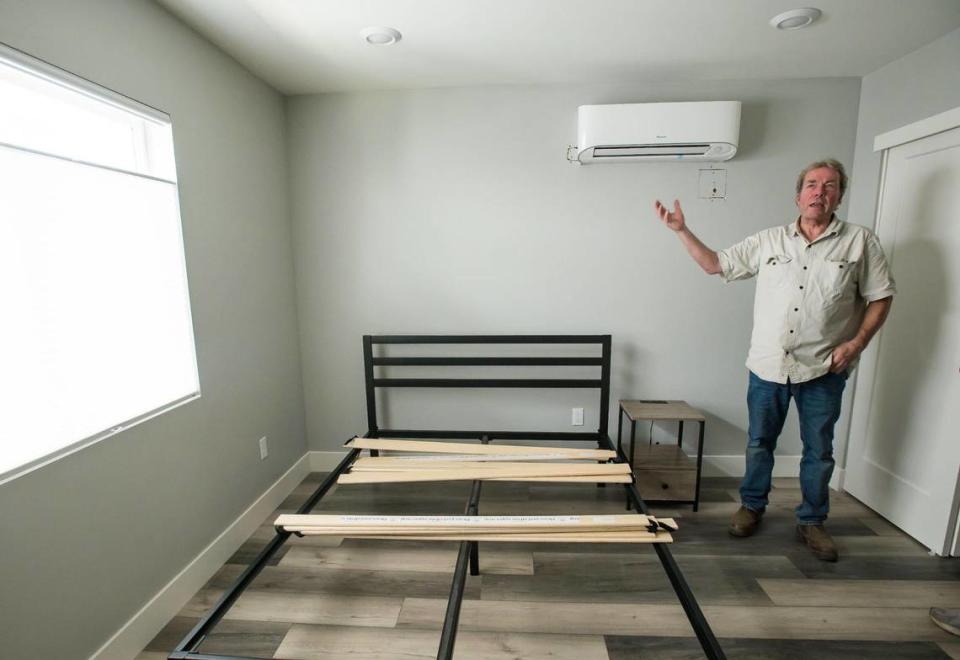Tiny home builder that started in Sacramento region has sights set on a national franchise
Fair Oaks house builder Colton Paulhus is plotting an empire of thousands of tiny homes across the U.S. based on his success in the Sacramento region.
His Anchored Tiny Homes only opened for business in 2019, but the small company that includes his father, Scott, a general contractor, and his brother, Austin, has already built 200 homes in Northern California and has contracts for another 300.
“There is a big need for more affordable housing in the Sacramento area and other large U.S. metropolitan areas,” said Paulhus.
Now, he is franchising his concept of building auxiliary housing units on homeowners existing property across the country. In the last few months, he has sold franchises in Austin, San Antonio, Boston, Raleigh, Jacksonville, Florida and Bend, Oregon. His first franchiser in Salt Lake City signed a contract in late 2022.
Anchored Tiny homes are unlike the tiny homes being built by the state of California and the County of Sacramento to house the homeless. Gov. Galvin Newsom said in March that $30 million would be spent to build 1,200 tiny homes.
“We’re building structures that give people the sense that they are living in an actual house,” Paulhus said.
For one thing, Paulhus’ homes are much more spacious, think 600 feet to 800 feet, rather than the small structures for the homeless that can be as small as 120 feet.
His homes are called auxiliary housing units officially, but also go by the more popular nickname, “granny flats.”
Granite kitchen islands, hardwood floors, built-in microwaves, equal the features of more luxurious homes, just on a smaller scale.

“Seventy percent of our sales is building auxiliary living units for family use,” said Paulhus, the CEO of Anchored Tiny Homes. “Mom living in the backyard unit, kids coming home from college. And then the remaining is the investors. Homeowners wanting to have more cash flow by renting out auxiliary housing units.”
It was another piece of legislation signed by Newsom in October 2019 that helped Anchored Tiny Homes. The new law made it harder for municipalities to reject such homes by streamlining statewide zoning requirements and removing impediments to their construction.
The bill was part of Newsom’s effort to build more housing in California and to bring down the cost.
Still, local regulations vary. In the city of Sacramento, two auxiliary housing units are allowed on a property. In unincorporated parts of Sacramento County, only one unit is allowed.
Paulhus said the completed units cost customers anywhere between $100,000 and $350,000, with an average price of $185,000.
The builder said he’s hoping to close the affordability gap while creating more housing, but renting one of the tiny homes is not necessarily cheap.
Former Channel 10 reporters George Warren and Sharon Ito spent close to $400,000 for their nearly complete auxiliary housing units from Anchored Tiny Homes behind their house in midtown Sacramento. They have exchanged their backyard for what they hope will be a steady stream of rental income.
Warren, who still works part-time in television news, hopes to rent the nearly complete 600 foot homes to traveling nurses or therapists for around $2,500 a month each. He said each home will be furnished.
“Sacramento is a hot market for traveling health professionals,” he said.
Warren said he could have hired his own contractor to build the houses but it was much easier dealing with Paulhus’ company.

“Do you go to the city and find out what’s possible? Then go to an architect? And it just seemed daunting,” said Warren. “And the fact that they do this turnkey thing, you sign here, you put a deposit down and you have progress payments, and they take care of all the permitting. They get the general contractor, they deal with all the headaches.”
Paulus doesn’t have a factory, all the homes are built on site. He said a sub-contractor is hired for each construction job.
The company has 42 in-house employees who work in areas ranging from marketing to working with local municipalities to get the plans approved for the tiny houses.
Paulus said the company made $47 million in revenue in 2022 and is on-track to exceed that this year.
He said around one-third of the cost to build a home is profit to his company.
All of Anchored Tiny Homes are built on foundations. Originally when the company opened in mid-2019, it focused on tiny homes on wheels that could be moved from site to site.
Paulhus said he abandoned that concept in 2020 after “realizing the market is too small.”
He got the idea for the company after seeing a competitor’s tiny home advertisement. Paulhus got his fathers approval and put his own ad on Facebook. Within several days he had 300 responses expressing interest.
“That was confirmation, there’s a need from consumers,” he said.

 Yahoo Finance
Yahoo Finance 